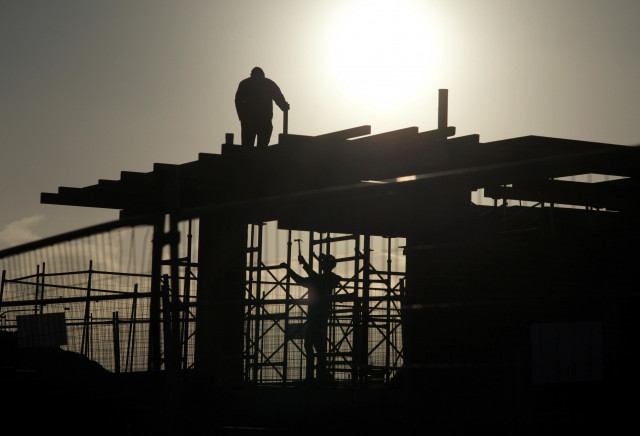Construction amnesty to benefit wealthy, say economists
PM Khan is trying to rebuild economy via construction amnesty after pandemic

Eminent economist Dr Ikramul Haq and former finance minister Dr Miftah Ismail have said that the government’s tax amnesty scheme for construction sector will divert business from one sector to another and wealthy people will be the real beneficiaries of the scheme as they invest in real estate to whiten their untaxed money.
Both the economists while sharing their views on different tax amnesty schemes given in the recent past and announcement made by Prime Minister Imran Khan to extend construction amnesty scheme, respectively, said continuous amnesty will lead to tax evasion and a long-term tax holiday would have been more beneficial than just extending the same thing again and again.
“Critics say that in Pakistan, most wealthy people invest in real estate and construction to whiten their ill-gotten and/or untaxed money and therefore, they will be the real beneficiaries,”Dr Haq noted.
He maintained that the “wizards sitting in Ministry of Finance and FBR have failed to realise that long-term 10-year tax holiday for the real estate/housing/construction sectors would have been more beneficial as over 70 industries are linked to these sectors and Pakistan needs millions of houses every year.”
He added these measures if successful, can avoid recession, revive economy and provide employment to millions.
Dr Haq observed that the construction industry in return must provide full social protection and universal entitlements to its workers.
In the original and the extended package, he pointed out, PTI government though declared construction an “industry”, but has not made it mandatory for them to take care of all their employees, workers – permanent or on contract.
“They should comply with all the relevant labour laws related to Social Security, Employees Old-Age Benefits, and Workers’ Welfare Fund,” he said.
Dr Haq pointed out that by and large the majority of economists agree that resumption of construction activities can revive employment, generate supply of goods and services and have a potential to kick-start the economy.
A push to the economy is much needed, he said, adding that “though in the wake of second deadly coronavirus outbreak, circumstances are unfavourable for investment in any sector in 2021.”
Commenting on the issue, Dr Miftah Ismail maintained that instead of attracting additional business, the government was diverting business from one sector to another by continuously giving amnesty to a specific sector.
“Those who wanted to set up a factory would prefer to invest in construction sector,” he said, and observed that “this is diversion in economy from one sector to another”.
He opined that continuous amnesty for a particular sector will create massive distortions in the future and it could also lead to tax evasion as people doing other businesses would show that they were also investing in the construction business just to evade taxes.
Responding to a question, Dr Ismail said the reason behind giving the special package to the construction sector was that it was “close to premier’s heart” and added that “several donors of the ruling party belonged to the sector”.
Since the outbreak of Covid-19, Prime Minister Imran Khan presented the construction industry as his flagship project and betting on its revival for a surge in the economic activities.
As part of tax amnesty scheme, the government permitted people to invest in the construction sector without disclosing the source of income.
The second major concession is that the government introduced fixed income tax for builders and developers instead of charging tax according to their income.



















COMMENTS
Comments are moderated and generally will be posted if they are on-topic and not abusive.
For more information, please see our Comments FAQ